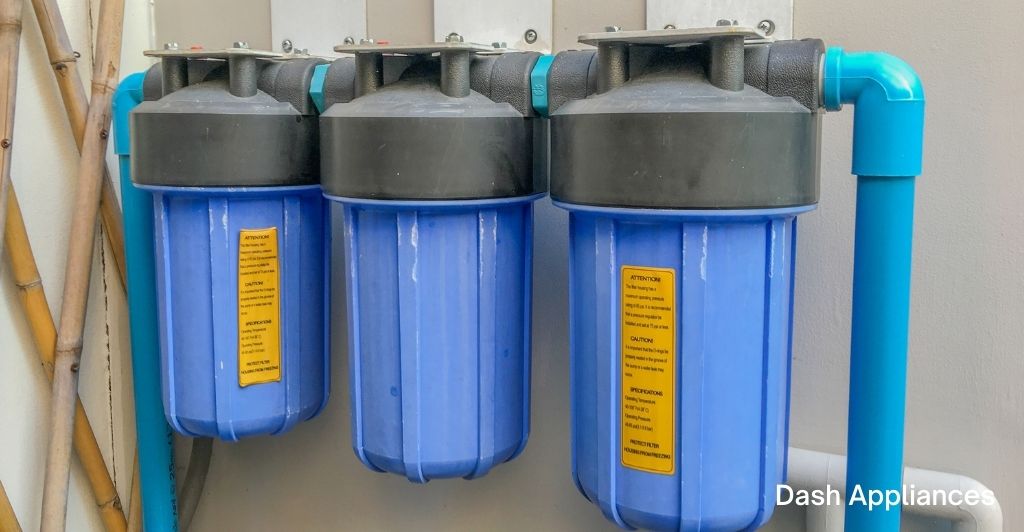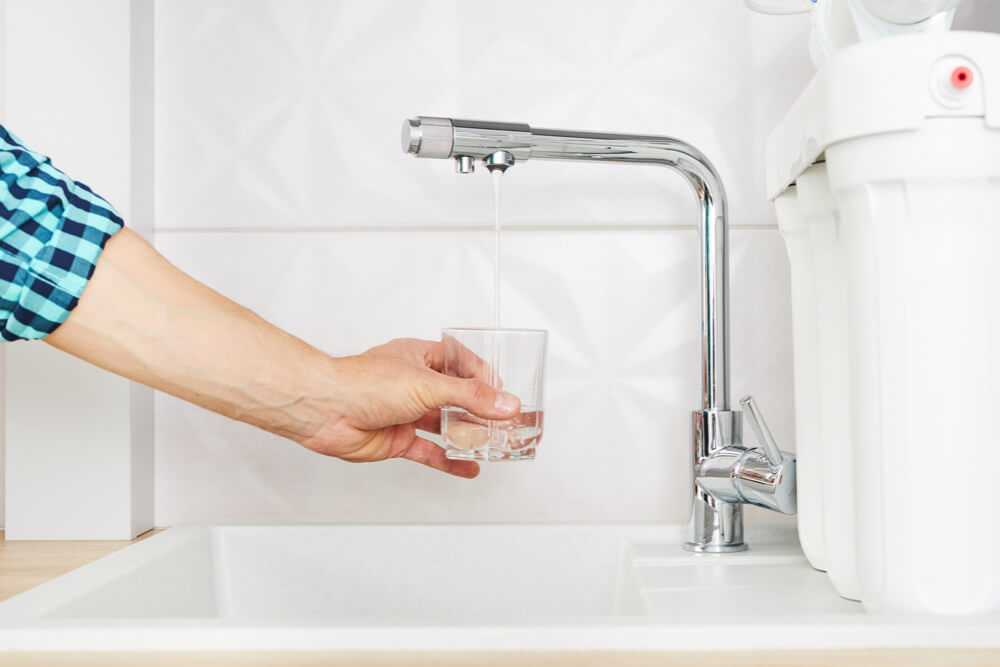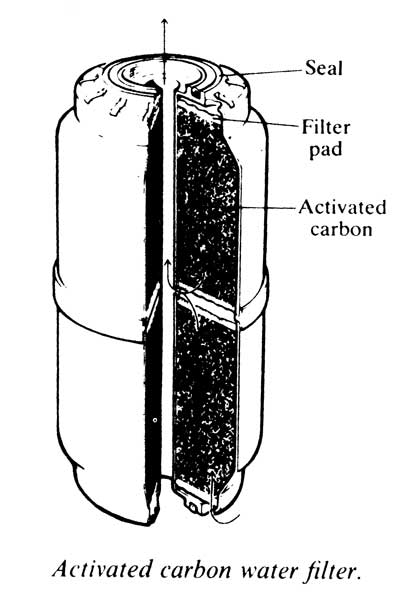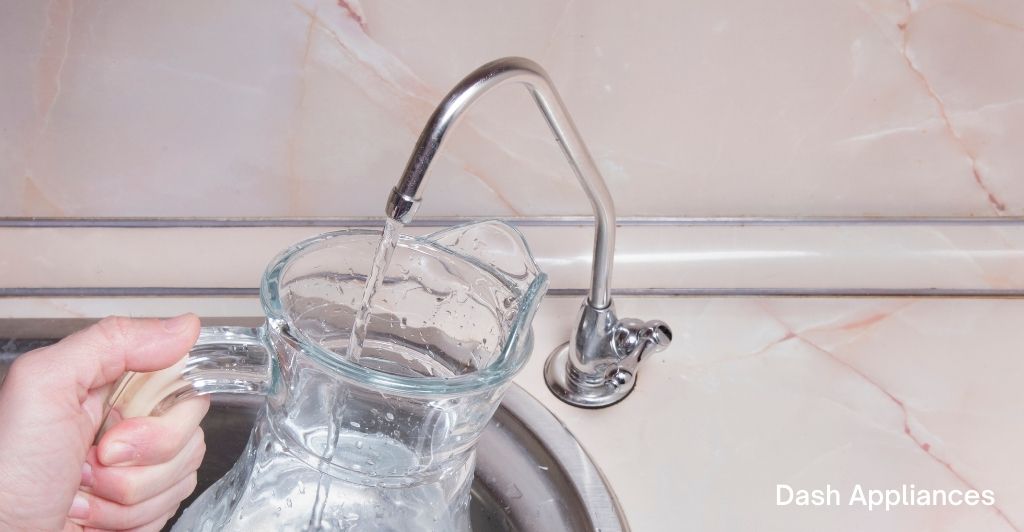Many people are under the misconception that faucet water filters are a waste of money. We believe that by purchasing bottled water, you will be able to avoid any contaminants in their tap water.
While this might be true for some brands of bottled water, it is not always the case. The purpose of this post is to determine whether or not faucet water filters really work and how they compare with other methods for purifying our drinking supply.
Difference Between Filtering and Purifying
Before we can answer the question of whether or not faucet water filters work, we need to determine the difference between filtering and purifying. Purification is defined as removing all impurities from a substance.

In contrast, filtration is defined as passing a liquid through a porous substance in order to remove certain substances in suspension in the liquid (1). The key here is that for something to be purified, there must be no trace or presence of contaminants whatsoever.
Likewise, for something to be filtered, only specific contaminants need to be removed. This means that if we want our drinking supply absolutely pure, we would have to use both filtration and purification processes.
What is a Faucet Water Filter?
Faucet water filters are an easy, effective way to reduce the contaminants in your drinking water. By filtering the water that comes into your home through your faucet, you can remove a number of contaminants that would otherwise be consumed by you and your family.
Faucet water filters attach directly to the tap in your kitchen sink or bathroom sink and filter out contaminants as the water passes through. The water first flows through an outer housing which contains a filter cartridge. The filter cartridge is where the filtration takes place.

Most faucet water filters use activated carbon as their primary filtration material, although there are some models which use other types of filtration media. As the water flows through the activated carbon filter, it absorbs many of the contaminants in the water, such as chlorine, lead, mercury and other common pollutants.
Some faucet water filters also have additional filtration elements after the activated carbon filter to remove other types of contaminants.
For example, some may use a fluoride filter to eliminate fluoride from drinking water. Others may use another type of activated carbon to remove organic compounds like pesticides and herbicides. Some even go so far as to include a reverse osmosis filter in order to produce high-quality drinking water.
Do Faucet Water Filters Really Work?
Faucet water filters do remove contaminants and sediments from our tap water.
Researchers believe that these units can remove up to 90% of the chlorine in our drinking water, allowing us to experience a difference after just one glass.
Some of the contaminants, such as arsenic and lead, will not be completely removed, but it will go a long way towards making your water supply safer for you.
1. Sediment removal
Sediment removal is a little more complicated. While some of the contaminants might be going through the filter, there is a good chance that other pollutants will be attached to these sediments.
This means that we need to use a solution known as a point-of-use water filter.
Most of the units on the market have both features combined into one unit, which makes it very efficient and easy to install under our sink.
2. Activated carbon block
Activated carbon block filters are also known for their ability to remove odors and bad tastes from the water.

Unfortunately, this means that even if our tap is not loaded with contaminants, it can affect the taste of our drinking water.
3. Chemical removal
Chemical removal is one of the most important features of a water filter. It can remove harmful chemicals such as chlorine, chloramine, and VOCs.
In addition, if we are using a carbon-based filter, it will also remove any metals that are in our water supply.
How Often do We Need to Replace Faucet Water Filters?
The good news is that activated carbon-based faucet water filters are affordable units. If you have a model on the countertop, it will need to be replaced every three months.
The pitcher models are even more economical because they can last up to six months before needing another cartridge.
The under-the-sink models are a little more expensive, but they last for one year before needing to be replaced.
How Do We Know When Our Faucet Water Filter Needs Replacing?
If we find it hard to remember when we last replaced our filter, a simple indicator will let us know. Likewise, if the water stream starts to lose pressure, it’s probably time to replace the cartridge.

However, if there is no difference in taste or smell after filtering our glass of tap water, then you might have a problem with our cartridge.
Types of Faucet Water Filter Cartridges
There are three types of faucet water filter cartridges:
1. Activated carbon filter cartridge
Activated carbon filter cartridges are the most common type. It removes large metals, parasites, and other bacteria from our tap water.
However, it can also reduce the pH levels in your drinking water, which might cause problems for anyone who has a sensitive stomach.
2. Reverse osmosis cartridge
Reverse osmosis cartridge removal is one of the highest quality options on the market. This type of faucet water filter will remove up to 99% of contaminants in our drinking water, including fluoride.
3. Chloramine Cartridge
The last cartridge is a chloride cartridge. It will remove chloramine from our tap water, which is sometimes used by local municipalities in place of chlorine to reduce the number of contaminants in our tap water.
Conclusion
Overall faucet filters are easy to use, economical, and effective in removing contaminants from your drinking water.
They do a great job of removing many of the harmful contaminants from the drinking water. While they will not remove fluoride, they are effective at removing chlorine, lead, and other metals.
Therefore, when it is time to replace the filters, you will typically have no problem finding a quality replacement.
While there are many benefits of having a faucet water filter cartridge in our home, they can also reduce the pH levels in our drinking water.
If this becomes an issue for anyone with health problems, it might be best to use a reverse osmosis cartridge to remove as many contaminants as possible.
